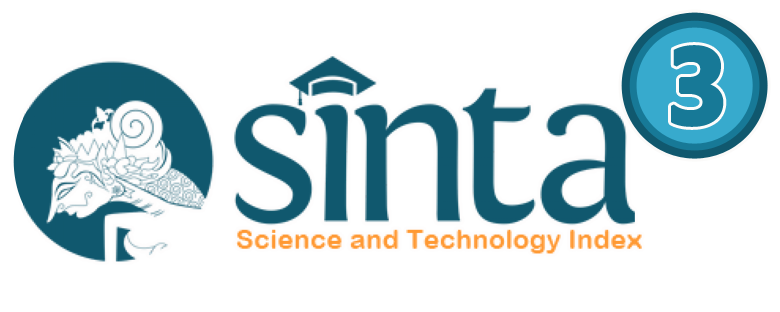Perceived Organizational Support and Resilience as Predictors of Employee Engagement among Digital Marketing Employees in Purwokerto
DOI:
https://doi.org/10.18326/ijip.v7i1.4133Keywords:
Digital Marketing, Employee engagement, Employee, Perceived Organizational Support (POS), ResilienceAbstract
Digital marketing companies face challenges in maintaining employee engagement amidst the demands of technological change. Although career development programs are available, some employees still show suboptimal engagement. Previous studies have shown that perceptions of organizational support and resilience play a crucial role in enhancing employee engagement. Therefore, this study aims to examine these two factors as predictors of employee engagement in digital marketing companies. The approach used in this study is quantitative, employing a survey research design, and the study utilized a sample of 144 employees. The sampling technique used in this study is Random Sampling. The instruments used are the Employee Engagement Scale, a psychology scale of 12 items; the Perceived Organizational Support Scale, an instrument of 9 items; and resilience, using the CD-RISC-10 of 10 items. The results of the study showed that perceptions of organizational support and resilience have a significant effect on employee engagement, with a significance value of 0.000 (<0.05). The higher an employee's perception of the support provided by the organization, and the higher their level of psychological resilience or endurance, the higher their level of employee engagement in their work. These findings highlight the significance of psychological factors and organizational support in promoting work engagement in a dynamic and competitive work environment.
References
I. Daud et al., “The effect of digital marketing, digital finance and digital payment on finance performance of Indonesian SMEs,” Int. J. Data Netw. Sci., vol. 6, no. 1, pp. 37–44, 2022, doi: 10.5267/J.IJDNS.2021.10.006.
M. Darestuti, “Perkembangan Digital Marketing di Indonesia dan Tren Digital Marketing,” Buzzup.id, 2021.
Y. E. Rachmad et al., “Manajemen Pemasaran Digital Terkini (Perubahan Era Manajemen Pemasaran Kearah Digitalisasi),” in PT. Sonpedia Publishing Indonesia, 2023.
P. D. H. M. M. Abdullah, Manajemen dan Evaluasi Kinerja Karyawan. 2014.
Robbins and Judge, “Perilaku Organisasi,” in Jakarta: Salemba Empat, 2007.
C. A. Savitri, N. L. P. N. Anggraeni, and D. F. Santosa, “Analisis Faktor Employee Engagement terhadap Kinerja Karyawan di PT Sinkona Indonesia Lestari,” J. Manaj. dan Organ., vol. 14, no. 2, pp. 110–124, 2023, doi: 10.29244/jmo.v14i2.44680.
B. Shuck and K. Wollard, “Employee engagement and HRD: A seminal review of the foundations. Human Resource,” Dev. Rev., vol. 9, no. 1, pp. 89–110, 2010.
W. . Khan, “Psychological conditions of personal engagement and disengagement at work,” Acad. Manag. J., vol. 33, no. 4, pp. 692–724, 1990.
S. Riyanto, E. Endri, and N. Herlisha, “Effect of work motivation and job satisfaction on employee performance: Mediating role of employee engagement,” Probl. Perspect. Manag., vol. 19, no. 3, pp. 162–174, 2021, doi: 10.21511/ppm.19(3).2021.14.
M. Amir and W. L. Mangundjaya, “How Resilience Affects Employee Engagement? A Case Study in Indonesia,” J. Asian Financ. Econ. Bus., vol. 8, no. 2, pp. 1147–1156, 2021, doi: 10.13106/jafeb.2021.vol8.no2.1147.
H. N. Ngunyen and M. D. Tran, “The Effect of Perceived Organizational Support on Employee Engagement During the COVID-19 Pandemic: An Empirical Study in Vietnam,” J. Asian Financ., vol. 8, no. 6, pp. 415–0426, 2021, doi: 10.13106/jafeb.2021.vol8.no6.0415.
S. Acharya and G. Anand, “A study on quality of work life, motivation and employee engagement among nurses in private hospitals of Indore,” Int. J. Public Sect. Perform. Manag., vol. 6, no. 5, pp. 676–686, 2020, doi: 10.1504/IJPSPM.2020.110138.
H. Hasan, E. S. Astuti, T. W. A, and M. Iqbal, “Impact of Organizational Culture on Employee Engagement and Employee Performance: A Stimuli-Organism-Response Approach,” Wacana J. Soc. Humanit. Stud., vol. 23, no. 4, pp. 235–245, Jun. 2020, doi: 10.17010/pijom/2018/v11i6/128442.
L. Rhoades and R. Eisenberger, “Perceived Organizational Support: A Review of the Literature,” J. Appl. Psychol., vol. 87, no. 4, pp. 689–714, 2002.
A. K. Alvi, A. S. Abbasi, and R. Haider, “Relationship of Perceived Organizational Support and Employee Engagement,” Sci. Int., vol. 26, no. 2, pp. 951–954, 2014.
E. Goman, A. Matulessy, A. P. Rini, and F. Psikologi, “Hubungan efikasi diri dan persepsi dukungan organisasi dengan keterikatan kerja pada karyawan,” Univers. J. Sci. Technol., vol. 3, no. 1, pp. 38–50, 2023.
N. Najwa, E. D. Aprilia, I. Riamanda, and M. M. Puri, “The relationship between resilience and work-study conflict in working students,” IJIP Indones. J. Islam. Psychol., vol. 5, no. 2, pp. 193–213, Dec. 2023, doi: 10.18326/ijip.v5i2.176.
L. Campbell‐Sills and M. B. Stein, “Psychometric analysis and refinement of the connor–davidson resilience scale (CD‐RISC): Validation of a 10‐item measure of resilience,” J. Trauma. Stress, vol. 20, no. 6, pp. 1019–1028, Dec. 2007, doi: 10.1002/jts.20271.
C. . Cooper, Y. P. Liu, and S. Y. Tarba, “Resilience, HRM practices and impact on organizational performance and employee well-being,” Int. J. Hum. Resour. Manag., vol. 25, pp. 2466–2471, 2014.
V. S. Athota, P. Budhwar, and A. Malik, “Influence of Personality Traits and Moral Values on Employee Well-Being, Resilience and Performance: A Cross-National Study,” Appl. Psychol., vol. 69, no. 3, pp. 653–685, 2020.
J. W. Creswell, Research Design, Pendekatan Metode Kualitatif, Kuantitatif, dan Campuran. 2016.
D. R. Cooper and P. . Schindler, Business Research Methods. USA: Mcgraw- Hill College. 2001.
Sugiyono, Metode penelitian kuantitatif, kualitatif, dan r&d. Bandung: Alfabeta, 2019.
L. Rhoades and R. Eisenberger, “Perceived organizational support: A review of the literature.,” J. Appl. Psychol., vol. 87, no. 4, pp. 698–714, Aug. 2002, doi: 10.1037/0021-9010.87.4.698.
K. M. Connor and J. R. T. Davidson, “Development of a new resilience scale: The Connor-Davidson Resilience Scale (CD-RISC),” Depress. Anxiety, vol. 18, no. 2, pp. 76–82, Sep. 2003, doi: 10.1002/da.10113.
B. Shuck, J. L. Adelson, and T. G. Reio, “The employee engagement scale: Initial evidence for construct validity and implications for theory and practice,” Hum. Resour. Manage., vol. 56, no. 6, pp. 953–977, 2017, doi: https://doi.org/10.1002/hrm.21811.
B. J. Putra, “Jurnal Bimbingan Konseling Pendidikan Islam Studi Literatur : Teori Perkembangan Karir Donald Edwin Super,” J. Bimbing. Konseling Pendidik. Islam, vol. 2, no. 01, pp. 22–30, 2021.
M. Ikemizu, H. Maruyama, T. Hosoda, T. Matsuo, and T. Hochin, “New Conceptual Model of Employee Engagement in Formal and Informal Organizations of Japanese Companies,” Int. J. Serv. Knowl. Manag., vol. 7, no. 1, p. 1, 2023, doi: 10.52731/ijskm.v7.i1.775.
L. S. Kumbadewi, I. W. Suwendra, and G. P. A. J. Susila, “Pengaruh umur, pengalaman kerja, upah, teknologi dan lingkungan kerja terhadap perilaku caring perawat,” e-Journal Univ. Pendidik. Ganesha, vol. 9, p. 8, 2021.
A. Jamaludin, T. Widiarto, S. Sutina, and S. Jumaeroh, “Pengaruh Usia dan Masa Kerja terhadap Produksi Tenaga Kerja di PT. Galva Kami Industry Cikarang,” Sosio e-Kons, vol. 16, no. 2, p. 147, 2024, doi: 10.30998/sosioekons.v16i2.22285.
M. M. Madyaratri and U. A. Izzati, “Perbedaan work engagement ditinjau dari masa kerja pada karyawan bagian produksi,” Character J. Penelit. Psikol., vol. 8, no. 3, pp. 24–35, 2021.
S. Wei and C. Bunchapattanasakda, “Influence of Female Leadership Style on Employee Engagement in Public Higher Educational Institutions in Beijing City, China,” J. Dhamma Life, vol. 30, no. 3, pp. 226–242, 2024, doi: 10.14456/jdl.2024.46.
N. Z. Memon and L. K. Jena, “Gender Inequality, Job Satisfaction and Job Motivation: Evidence from Indian Female Employees,” Manag. Labour Stud., vol. 42, no. 3, pp. 253–274, 2017, doi: 10.1177/0258042X17718742.
U. S. Sulistyawati and D. Sufriadi, “Perceived organization support towards employee engagement and the impact of employee job satisfaction,” Int. J. Soc. Sci. Bus., vol. 4, no. 4, p. 513, Nov. 2020, doi: 10.23887/ijssb.v4i4.28587.
J. Jin and J. Tang, “Exploring the effect of perceived organizational support and resilience on Chinese pharmacists’ engagement in stressful and competitive pharmaceutical work at hospitals,” Saudi Pharm. J., vol. 29, no. 9, pp. 931–938, 2021, doi: 10.1016/j.jsps.2021.08.003.
N. Yusrin and D. Kurniaty, “Pengaruh Resiliensi Terhadap Produktivitas Kerja Karyawan Di Masa Pandemi Covid-19 Pada Departemen Business Operation PT AXA Mandiri Financial Services,” J. Manaj. dan Bisnis Madani, vol. 5, no. 1, pp. 1–14, 2023, doi: 10.51353/jmbm.v5i1.653.
H. Sadiyah, K. Rozaq, and D. Nugrohoseno, “The The Effect of Perceived Organizational Support and Job Crafting on The Organizational Citizenship Behavior Through Work Engagement as an Intervening Variable,” J. Bus. Manag. Rev., vol. 4, no. 7, pp. 561–576, 2023, doi: 10.47153/jbmr47.7492023.
T. Jangsiriwattana, “Negative Effect of Perceived Organizational Support from the Too-much of Good Thing Effect ( TMT ): Evidence from the Aviation Organizations in Thailand,” Humanit. Soc. Sci. J. Pibulsongkram Rajabhat Univ., vol. 18, no. 1, pp. 27–39, 2024, doi: https://doi.org/10.14456/psruhss.2024.3.
T. Djatmiko, A. P. Prasetio, and E. Azis, “Perceived Organizational Support As Mediator in the Relationship Between Effective Human Resources Practice and Employee Engagement in Indonesia,” J. Apl. Manaj., vol. 18, no. 2, pp. 307–317, 2020, doi: 10.21776/ub.jam.2020.018.02.11.
E. P. Wiroko and D. Sugiharti, “Gratitude and work engagement: The mediating role of employee resilience,” INSPIRA Indones. J. Psychol. Res., vol. 3, no. 2, pp. 38–50, 2022, doi: 10.32505/inspira.v3i2.4848.
Downloads
Published
Issue
Section
License
Copyright (c) 2025 IJIP : Indonesian Journal of Islamic Psychology

This work is licensed under a Creative Commons Attribution-ShareAlike 4.0 International License.

 Indonesian Journal of Islamic Psycology is licensed under a
Indonesian Journal of Islamic Psycology is licensed under a 


